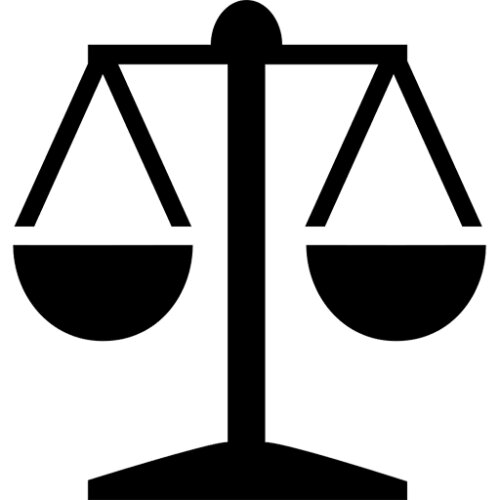Best Oil, Gas & Energy Lawyers in Nice
Share your needs with us, get contacted by law firms.
Free. Takes 2 min.
List of the best lawyers in Nice, France
About Oil, Gas & Energy Law in Nice, France
Nice, located in the Provence-Alpes-Côte d'Azur region of France, is home to a dynamic energy sector, including oil, gas, and renewable energy projects. The region benefits from a strategic location along the Mediterranean, proximity to industrial hubs, and a connection to European energy networks. Legal frameworks surrounding oil, gas, and energy are robust and cover a wide array of activities from exploration, production, and distribution to environmental protection and regulatory compliance.
Why You May Need a Lawyer
There are multiple circumstances in which individuals or companies engaged in the oil, gas, and energy sectors may require legal assistance. Some common situations include:
• Navigating complex regulatory approvals for energy projects.
• Drafting and negotiating contracts related to exploration, production, and distribution.
• Managing disputes or litigation involving environmental impacts, land use, and compliance with local laws.
• Ensuring adherence to safety and labor laws in energy operations.
• Addressing intellectual property concerns, especially for innovative energy technologies.
• Securing financing and investments for large-scale energy projects.
Local Laws Overview
France, including the region around Nice, has an extensive legal framework for oil, gas, and energy law, which includes but is not limited to:
• The Code of Energy (Code de l’énergie) which regulates the exploration and production of energy resources.
• Environmental laws that address the impact of energy projects on natural habitats and require Environmental Impact Assessments (EIAs) for significant projects.
• The Hydrocarbons Law that controls the licensing and permits for oil and gas exploration and production activities.
• Regulations concerning renewable energy that promote the use of sustainable energy sources such as wind, solar, and hydroelectric power.
• Safety regulations that ensure the protection of workers and local communities.
• Land use laws that affect the location and development of energy infrastructure.
Frequently Asked Questions
1. What permits are required for starting an oil and gas project in Nice?
You will need exploration and exploitation licenses. Obtaining these licenses involves detailed applications and compliance with both national and local regulations.
2. Can foreign companies invest in energy projects in Nice?
Yes, foreign investments are allowed but subject to regulatory oversight. Due diligence and aligning with local laws are essential.
3. What are the key environmental regulations I need to be aware of?
Projects must comply with regulations under the Environmental Code, including conducting Environmental Impact Assessments (EIAs) and adhering to specific emission standards.
4. How are renewable energy projects regulated?
Renewable energy projects are supported by various incentives and governed by laws that promote sustainable energy development. Permitting processes are streamlined but rigorous.
5. What are the safety requirements for oil and gas operations?
Operators must comply with strict safety regulations, including regular inspections, maintenance protocols, and emergency response plans to protect workers and the environment.
6. What types of disputes might arise in the energy sector?
Disputes can involve contractual disagreements, regulatory non-compliance, environmental damage claims, and issues related to land use rights.
7. Are there incentives for developing renewable energy sources?
Yes, there are several incentives including tax benefits, subsidies, and feed-in tariffs designed to support the development of renewable energy projects.
8. How do intellectual property laws affect the energy sector?
Intellectual property laws protect innovations and technology used in the energy sector. Patents, trademarks, and trade secrets are crucial for maintaining competitive advantage.
9. What should I consider when drafting contracts for energy projects?
Contracts should cover scope of work, timelines, payment terms, compliance with regulations, dispute resolution mechanisms, and liability issues.
10. How can I ensure compliance with local and national laws?
Working with a knowledgeable legal advisor is crucial. They can guide you through the regulatory landscape, ensure that your projects meet all legal requirements, and assist with permits and licenses.
Additional Resources
• Ministry for the Ecological Transition (Ministère de la Transition écologique)
• Renewable Energy Syndicate (Syndicat des Énergies Renouvelables)
• French Energy Regulatory Commission (Commission de Régulation de l'Énergie)
• National Institute for Industrial Safety and the Environment (INERIS)
• Regional Directorate for Environment, Planning, and Housing (DREAL Provence-Alpes-Côte d'Azur)
Next Steps
If you need legal assistance in the field of oil, gas, and energy in Nice, France, consider the following steps:
1. **Assess Your Needs:** Identify the specific legal issues or questions you have.
2. **Contact a Specialist:** Seek a lawyer or legal firm that specializes in oil, gas, and energy law. Look for those with experience in French and regional regulations.
3. **Prepare Documentation:** Gather all relevant documents, such as contracts, permits, and records related to your project or issue.
4. **Consult and Plan:** During your consultation, discuss your needs, explore your options, and develop a legal strategy.
5. **Follow Legal Advice:** Ensure that you follow through with the legal advice and steps recommended by your lawyer to comply with regulations and effectively manage your project or dispute.
Lawzana helps you find the best lawyers and law firms in Nice through a curated and pre-screened list of qualified legal professionals. Our platform offers rankings and detailed profiles of attorneys and law firms, allowing you to compare based on practice areas, including Oil, Gas & Energy, experience, and client feedback.
Each profile includes a description of the firm's areas of practice, client reviews, team members and partners, year of establishment, spoken languages, office locations, contact information, social media presence, and any published articles or resources. Most firms on our platform speak English and are experienced in both local and international legal matters.
Get a quote from top-rated law firms in Nice, France — quickly, securely, and without unnecessary hassle.
Disclaimer:
The information provided on this page is for general informational purposes only and does not constitute legal advice. While we strive to ensure the accuracy and relevance of the content, legal information may change over time, and interpretations of the law can vary. You should always consult with a qualified legal professional for advice specific to your situation.
We disclaim all liability for actions taken or not taken based on the content of this page. If you believe any information is incorrect or outdated, please contact us, and we will review and update it where appropriate.













